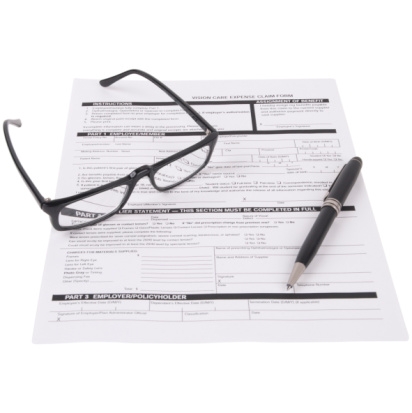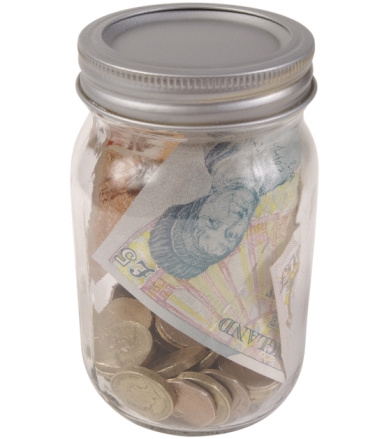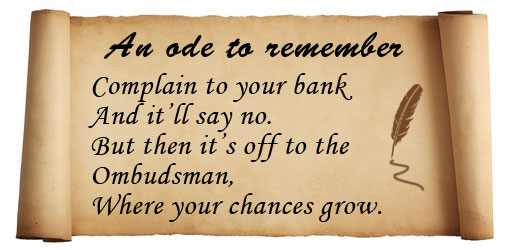 If you have a credit or store card or had one in the last six years, you could reclaim �1,000s. Expensive payment protection insurance (PPI) has been widely mis-sold with big lenders such as Egg & Capital One having been hit with huge fines.
If you have a credit or store card or had one in the last six years, you could reclaim �1,000s. Expensive payment protection insurance (PPI) has been widely mis-sold with big lenders such as Egg & Capital One having been hit with huge fines.
Thousands have been mis-sold policies, for example, old agreements with pre-ticked boxes or store cards that were sold by someone with no financial background. Use our step-by-step guide to reclaiming, plus free templates, to find out if you can claim.
In this guide
Quick links
Looking for Loan PPI? See PPI Reclaiming Guide
While every effort's been made to ensure this article's accuracy, it doesn't constitute legal advice tailored to your individual circumstances. If you act on it, you acknowledge that you do so at your own risk. We can't assume responsibility and don't accept liability for any damage or loss which may arise as a result of your reliance upon it.
Get �1,000s back on mis-sold credit card PPI
The UK's biggest protection racket isn't run by thugs in back alleys, but the genteel staff of Britain's banks. For years they've been stealing �1,000s, but now you can get your money back.
If you've a credit or store card, urgently check whether it included insurance, If so, you could be paying �1,000s for potentially worthless cover, without knowing about it.
The PPI industry has never been in so much trouble; millions of people have been mis-sold and while we've been campaigning on it for years, finally the regulators have caught up. Find out more
Regulation
Since 2006, the financial regulator, the FSA, has fined PPI companies left, right and centre for "not treating customers fairly".
Then in August 2010, it set out a list of rules providers must follow to proactively find and compensate consumers that have been mis-sold a policy. Yet in October 2010 the banking trade body, the British Bankers' Association (BBA), decided to take legal action against these plans and unfairly placed most cases on hold.
However, in April 2011 the High Court ruled in favour of mis-sold consumers, and the banks eventually accepted the verdict, gradually lifting the hold on claims.
Additionally, the Competition Commission has investigated the market and made a number of demands on lenders. Some came into effect in October 2011, mainly the requirement for firms to give more information to the consumer, and some will happen from April 2012, including the banning of sales within a week of selling a loan, and totally banning single premium polices.
Complaints
In Spring 2009 the Financial Ombudsman Service complained to the regulator that it thought lenders were "deliberately trying to obstruct the Ombudsman process" and that some lenders were rejecting ALL consumers' attempts to reclaim.
In September 2009, for the first time, it released details of company-by-company complaints data. Some big name lenders (Black Horse, Capital One, Egg, Lloyds TSB, Northern Rock, RBS, Barclays and MBNA) lost over 90% of insurance (primarily PPI) disputes at the Ombudsman.
Things have not been much better since. In 2009/10 89% of insurance cases dealt with by the Ombudsman were decided in the consumer's favour, and although percentages dropped slightly the following year due to the hold, two thirds of consumers still win.
Some inspiration before you begin
If you've been mis-sold you CAN get the money back � there have been thousands of successes and since the hold was lifted in May 2011 we've seen them coming through quicker. Here are just a few for inspiration, see PPI Successes for more (and as things will develop over time, please report yours and give us feedback that we can keep our article up to date):
GE Money is refunding me �2000!!
Reclaiming PPI on a store card from House of Fraser / GE Money
I have been told I will be getting a total of �2024.49 back!!
Two letters to them, four back � no need to go to the Financial Ombudsman.
One credit card company has sent me a cheque today for �747.38, and another has offered me the full �238 and I'm just awaiting their cheque.
I've had an MBNA credit card for years and wrote to it about mis-sold PPI. Eight months later, today, I received notification it will repay me �13,480. The patience and time to fill in various questionnaires has paid off.
I was reclaiming from Halifax and HSBC credit cards. After a few months of contacting the Ombudsman I received an offer from both banks, which I was happy to accept (the refund of PPI and the interest accrued). Combining the two, I got back around �2,800!!
How does credit card PPI work?
If you've taken out a credit or store card, it's likely you would have been offered payment protection insurance (PPI) with it. This is a form of insurance designed to cover your credit or store car repayments for a year in the event of an accident, sickness or unemployment.
Payment protection insurance (PPI) itself isn't a bad product. But it's been widely mis-sold with thousands of cards, leaving many paying hundreds for potentially worthless cover. If this applies to you, you may be able to reclaim what you've paid.
It's a common misconception that PPI protects you if you lose your card, but that's something different, known as a card protection scheme. PPI's there just to cover repayments if you're ill or unemployed, and usually only pays for a year.
How much is a typical credit card PPI payment?
Generally, the amount you pay for credit card PPI is about �10 per year for each �100 of your outstanding balance. It doesn't sound much, but over time it quickly mounts. On a �4,000 debt you'd pay �400 a year for PPI � after four years, that's a whopping �1,600. See more detail in the 'How much will you get back?' section below.
Why is PPI mis-sold so often?
 There are some 20 million PPI policies in the UK, generating about �5 billion a year for the companies involved. The insurance cost almost always dwarves the interest, so it's hardly surprising many believe this is the most overpriced financial product around.
There are some 20 million PPI policies in the UK, generating about �5 billion a year for the companies involved. The insurance cost almost always dwarves the interest, so it's hardly surprising many believe this is the most overpriced financial product around.
Sales staff dressed up as advisers were hugely incentivised to push these products whenever possible; and many were under so much pressure they strayed far from the truth. Worse still, in June 08, after a 15 month investigation into PPI, the Competition Commission found the following average payouts:
- Car Insurance: 78%
- Home Insurance: 54%
- Mortgage PPI: 28%
- Personal Loan PPI: 15%
- Credit Card PPI: 11%
Simply put, this means ...
For every �100 insurers take on car insurance, they pay out �78 -
but on credit card PPI they pay out just �11, meaning it is HUGELY profitable.
Most of this profit goes to the lenders, not the insurance companies. The only silver lining to all this? It means mis-selling cases are easier to win. See the success stories above for inspiration.
If you think you've got a good case, RECLAIM!
It's well worth reclaiming if you think you've been mis-sold; plus, if you've been mis-sold PPI with a substantial long-standing card debt, you could get �1,000s back.
How it may have been mis-sold?
How easy your reclaim is likely to be depends on how you signed up originally:
If you bought online ...

Nowadays, many apply for credit cards online, by post, or by filling in a leaflet. If you signed up for your credit card on the internet, reclaiming's more difficult as the full terms are usually available there, and the onus was on you to have understood them.
But there's an important exception. If you signed up with a provider that was using pre-ticked boxes, you may have had to opt out of the insurance rather than opt in.
In July 07, all lenders agreed to stop doing this, but if you took out a card before this date, check urgently � you may have bought insurance without knowing.
If you bought face-to-face or on the phone ...
Here, the salesperson is responsible to ensure you both understood the terms of any PPI and that the policy was appropriate; this also applies if you took out the policy online but were later called about the insurance, as often happened. This form of mis-selling has often been systematic, with staff being forced to sell policies or face lower pay.
You may've been told insurance was compulsory � it isn't, and that alone counts as mis-selling. Plus, the self-employed, unemployed, retired, those with pre-existing conditions, or who are covered elsewhere, have all commonly been flogged unnecessary policies.
So if you've got a case, write and complain but ASSUME you'll be rejected. Although it's less likely at the moment, no matter what your lender says, don't bat an eyelid and just keep going. To reclaim, you'll need to write up to three letters (templates for all of them are here); the last being to the free Ombudsman service, though there's a chance you could get a payout sooner.
As all of this is free, the worst case scenario by reclaiming is ... you lose the cost of three stamps.
Watch Martin's Video Guide
Recorded for loans, but most info applies to cards too. Recorded in Oct 2007 so small things may have changed. Always check the article for up-to-date info.
Also see the 4 min It Pays to Watch, Five, video or listen to the 24 min Radio 2 show.
Important! Don't miss PPI reclaiming updates Get MoneySavingExpert's free, spam-free weekly email full of guides & loopholes
Starting your claim FAQ
What do I do if I don't know who my lender is?
If you've had cards in the past but can't remember who with, the easy way to find out is to get a copy of your credit report. This lists all financial products you've had over the past six years, even if now closed.
You've a right to see your credit files for �2 from each of the three reference agencies, Equifax , Experian and Callcredit. Plus there are ways you can do it for free, see the Credit Rating guide for more info.
What do I do if I don't have any paperwork?
All you need to do is get a copy of your credit agreement from the lender. You've a legal right to do this for just �1, under something called the Consumer Credit Act. See the template letter below to help. Once you've got it, look for mentions of insurance, eg, 'payment cover', 'protection plan', 'card care' or 'card protection'.
It may not provide the agreement if your account is closed but alternatively you can look at your monthly statements. If you have PPI it will be shown each month (so you may need to check all statements). If you don't have them use the Paperwork request letter in the Want to calculate how much you may be owed? section below, althought this can cost �10.
How do I check if I've got credit card PPI?
Go through your credit or store card statements in detail, and look for any mention of an insurance payment � it may be worded as 'payment cover', a 'protection plan', 'ASU', 'card protection' 'card care' or similar. If you're unsure, contact the card company and ask.
If you find you've been paying for PPI you didn't know about, it's worth investigating. But note that if you weren't actually misinformed about, or mis-sold, PPI you're unlikely to have a case, and there's little point in starting a claim without good grounds.
How do I decide if I still want the cover?

Yet if you got a PPI policy with a credit or store card, it's likely you're paying MASSIVELY over the odds, so first check if you can get the same elsewhere for less. There are a number of things to consider:
-
Standalone cover can be over 70% cheaper
Sadly, some bank PPI policies are so expensive that the maximum payout for a full year may not even outstrip the policy cost. So, for example, you may pay �1,500 for a balance of �3,000 over five years, but the maximum it'd payout is just �700.
If you need insurance, it's possible to get similar cover at around a third of the cost, simply by buying a specialist insurance policy separately. See the Cheap PPI guide for more info. -
Cancel & switch expensive insurance
If you've already got a credit card with insurance from the bank, you should be allowed to cancel the insurance, which shouldn't be a problem with credit cards. First consider if you really need the policy. If you do, getting a standalone policy and cancelling the existing one should save you money, as less of your cash will be going towards enormous commissions.
Beware switching if you've a pre-existing condition
Most new policies won't include pre-existing conditions that you have at the time a policy is taken out, so don't change if this is your situation. For ways to switch see the Cheap Loan Insurance guide.
-
Need to make several claims?
After you make a claim (which usually covers payments balance for a year), you'll need to wait a set amount of time before making another - even though you'll be paying for the insurance.
How far back can I claim?
If your account was still ACTIVE in the last six years you can claim. So a card taken out eleven years ago but closed five years ago is fine. In rare cases you can go back further. See more info on timescales in Step 1 below.
I was turned down a few years ago, can I complain again?
Banks have been turning down cases willy-nilly in the last few years, to try to stop people taking it forward and going to the Ombudsman, knowing full well if people had taken it further they would have won.
Unfortunately this was successful and many did stop after the initial rejection and are now time-barred from going to the Ombudsman if it's been more than six months since the bank rejected your complaint.
Therefore the best move is to start a fresh complaint at the bank. The fact you were turned down before is not the main factor being looked at. New guidelines came into effect in May 2011 after the banks lost a court challenge, which mean they will hopefully now deal with cases of mis-selling correctly, looking at the facts rather than just rejecting complaints tactically.
As to whether you can then take it on to the Ombudsman if the bank turns you down again, the jury is still out on that one. The Ombudsman has told us it will look at this on a case-by-case basis, as this is a new situation and it hasn�t encountered it yet.
If you have already been to the Ombudsman and were turned down, it's unlikely this decision will be changed as it was already using the regulator's guidelines before the court case took place.
Sadly starting a new complaint does not mean the bank HAS to look into it again. It may decide there are no new reasons to investigate. If this is the case the Ombudsman is unlikely to be able to help, as it has strict time limits it must adhere to, unless the bank gives it permission to reopen a case.
Can I wipe out the whole credit card debt?
 TV and newspapers have ads from claims companies promising to wipe out pre-April 2007 debts, all through exploiting Consumer Credit Act loopholes.
TV and newspapers have ads from claims companies promising to wipe out pre-April 2007 debts, all through exploiting Consumer Credit Act loopholes.
This was always dubious at best, but in December 2009 this was closed for good in court � so the short answer is "No". See the MSE News story: Debt write-off loophole closed.
How much will I get back?

It's still possible to estimate how much the insurance has cost to find out how much you can reclaim � though it then depends whether you're entitled to the full amount or just a portion of it.
Once the amount has been calculated you can also add the actual cost of any interest (so that you're put back into the same position you would have been without the insurance) plus the 8% interest a court would give (to compensate for your loss of the money).
The provider should also consider correcting any further losses you have had as a result, for example the contribution affordability issues had to any arrears charges or default interest. If you have an outstanding debt to the lender they can use the money to pay it off though.
Estimating the size of your reclaim
The amount you've paid is different from product to product. Plus, the estimate's tricky as the amount you owe changes each month. Estimating is therefore far more of a 'guesstimate' � but you can get a rough idea.
Most card insurance plans cost roughly 80p per month per �100 of outstanding debt. So for every �100 of debt you've averaged over a year, you'd pay �10 in insurance � in other words, roughly 10% of your outstanding debt in insurance each year. This table gives examples:
| Rough average debt | Estimated insurance cost per year (10% of average debt) | How long you've had debt at this level | Estimated total insurance cost |
|---|---|---|---|
�1,000 |
�100 |
1 year |
�100 |
�2,500 |
�250 |
3 years |
�750 |
�4,000 |
�400 |
4 years |
�1,600 |
�10,000 |
�1,000 |
5 years |
�5,000 |
Can I claim if I'm in debt or have been made bankrupt?
Anyone who's been mis-sold can claim but if you owe the provider money, either now or from a debt in the past, it may choose to use the money to pay off your debt.
If you have been discharged from your bankruptcy and the mis-selling took place after you filed for the bankruptcy, there is a small chance you could get to keep the money. It�s more usual for your official receiver to get the cash though, especially if you�re making ongoing payments from your income or have other restrictions.
Step-by-step reclaiming
If you think you may be a victim of credit card PPI mis-selling, follow this step-by-step guide:
Step 1. Check your policy
Before starting, it's important to see if your claim is valid:
Did your insurance start in the last six years?
If yes, whether you're still using your card or not, reclaim and ask for a copy of the paperwork if you no longer have it.
Is it older but still active or did it end in the last six years?
Reclaim and ask for your paperwork if you no longer have it, although your chance of success may be reduced if you've been aware of the mis-selling for some time or if your account's very old.
Did your policy end over six years ago?
If you still have the paperwork, reclaim, although your chances of success are reduced, as it'll depend on what you can remember about the sale. If you don't have the paperwork, it's unlikely there will be records and, sadly, unlikely the reclaim will be successful.
Have you already claimed on the insurance?
Until January 2010 it had been generally assumed you couldn't make a mis0selling complaint if you'd already made a successful insurance claim. Yet proposals from the regulator now mean more people could be entitled to compensation.
Anyone who has claimed on a PPI policy can still submit a mis0selling complaint, using the timeframes above, though the chances of success are unclear.
However, even if you're not successful, you may be able to cancel your insurance.
Get the right paperwork
If you think your claim's likely to be valid, it's now time to make sure you've got the right paperwork for your needs:
Not got your paperwork?
If you can't find your agreement or T&Cs;, contact your lender to ask for a copy (make sure T&Cs; date back to the time of your agreement as terms will change over time).
Lenders can ask for �1 to provide this but not all do so you could include a �1 cheque (don't send cash, though) to speed it up a little. It may not provide the agreement if your account is closed but you can then ask for a full breakdown of your whole account (this can cost �10).
Want to calculate how much you may be owed?
If you want to calculate the exact amount, you'll need the right paperwork � though this isn't actually necessary, as if the company agrees the reclaim it should do it for you.
Just send a letter to the company requesting a full breakdown of your account, specifically including the insurance. If it takes longer than 40 days, report it to the Information Commissioner.
Step 2. The PPI reclaiming checklist
Now it's time to go through the checklist below. Sellers of PPI have a responsibility to ensure you understand the nature of the product, and that it's appropriate for you. All policies will have exclusions, and you should have been told about them. As most policies are bought alongside a financial product rather than on their own, the key issue is:
.. what was said at the point you were sold the product.
Here are the key mis-selling categories. If you fit one or more of these you probably have a case:
Were you told it was compulsory?
It's a common complaint that consumers are told they must buy a policy from the same provider as the credit card in order to be accepted for the product. This is mis-selling.
Any company that subscribes to the Lending Code (see list) agrees it won't insist you buy an insurance product from it. Therefore if the salesperson:
-
 Didn't make it clear the policy was optional or tell you about any cooling off period
Didn't make it clear the policy was optional or tell you about any cooling off period
- Implied or stated it would be more expensive if you didn't take the insurance
- Implied or insisted you take out their policy to qualify for the product or help with your application
- Was very pushy when selling the product, so that you felt you could not say no
- Would not let you continue with the application if you did not sign the insurance agreement as well
then go to the how to reclaim section.
Didn't realise you had cover?
Have you just checked your credit card statements to find that you've been paying for insurance, but didn't realise until now that you had it, or what it's for?
Some old agreements (pre-July 2007), particularly store cards, may have used pre-ticked boxes so you had to opt out of the insurance rather than opt in, which is unfair. Always check this, and if you're paying for insurance you didn't know you had, go to how to reclaim.
Were you told or sold the wrong thing?
This covers anything from the fact you were already covered through work or your partner, the policy not being what you agreed to, if you got store card cover in a shop and it wasn't explained, or if you thought it's a joint policy but in fact it's only in one person's name.
Does this apply to you? Expand the full general mis-selling briefing
Those selling PPI polices are obliged to tell you about the criteria of the policy and to confirm it's right for you. If you spoke to someone when applying for a card they need to consider your circumstance. Buying online places more reliance on you doing checks.
However, because PPI polices earn providers large profits, staff are often highly encouraged to sell as many as possible, and are well paid for doing so, meaning mis-selling is rife.
If you contacted a card provider by phone or in person, and if they didn't give you fair, correct and reasonable information it's likely you were mis-sold. Due to the volume of complaints, the regulators are now hot on the heels of this issue and restrictions are coming into place within the next year. Until then....
Some common examples of PPI mis-selling
Did you sign up for the finance in a shop?
If you got a store card it was likely to be sold by someone with no financial background, meaning more room for error, and a whole catalogue of misinformation could have been given. If this happened to you, send a reclaim letter to check the insurance was sold in your best interests.
Did you already have insurance cover?
If you were already covered. For example, if you had a separate income protection policy or your employer provided an illness and redundancy package, and you informed the salesperson you had this cover but they insisted you also had to take their insurance, or you weren't asked if you had any alternative cover, go to how to reclaim.
Do you have a joint card but the insurance is only in one name?
There's actually no such thing as a joint credit card � instead there's one account holder, and possibly second cards with other people's names on. So, as you'd expect, only the account holder is actually covered by the PPI. If you were told that secondary names were covered, go to how to reclaim.
Were you told the total price?
Before you agreed to take the card the lender should have told you the full cost of the insurance so that you could tell it was affordable. If you weren't given the costs in advance go to how to reclaim.
In summary
If you have an inappropriate PPI product and weren't told it was inappropriate, or you don't think you were given full information on what the policy would and wouldn't cover, send a letter asking for an explanation.
Self-employed, unemployed or retired?
If you were unemployed or retired, check if the policy included unemployment cover. If it did, the unemployment cover's worthless � this should've been pointed out.
If you were self-employed, check whether you were eligible for a payout if your business went bust (usually not) � if not, and it wasn't pointed out, you may have a case.
Does this apply to you? Expand the full mis-sold unemployment cover briefing
Have you been paying for a policy which includes unemployment? If you don't need unemployment cover, perhaps because you don't work or are self-employed, and mentioned this when you took out the policy, or were never asked about your employment status at all, a reclaim may be possible.
Is the policy suitable?
The unemployment element of PPI is only suitable for people who were working at the time they took out the policy, therefore you should have been asked about this at the time of application.
Example question: Are you in permanent employment, self-employment or contract employment for more than 16 hours a week?
Of course, if your policy only covers accident and sickness, with no unemployment element, this section doesn't apply to you.
 What is classed as working?
What is classed as working?
Providers have different definitions, so it's important to examine your policy in detail. If you're self-employed, check whether your specific set-up is covered.
As the unemployment element is a substantial part of the insurance cost, many who are self-employed have been paying for a semi-useless policy � and this could've been a huge waste of money.
If you were unemployed at the start of the policy (this includes students and stay at home parents), you were almost definitely mis-sold the insurance as, obviously, you wouldn't be covered for losing your job. The same applies if you knew you were going to become redundant or retire when you purchased the policy.
If it isn't suitable, were you mis-sold?
Assuming the policy isn't suitable, you need to establish if the salesperson bothered to check. Remember, it's the situation you were in when you got the cover that counts. So if you were an employee then, but are now self-employed, that's not their fault � unless you've subsequently asked if it was still suitable and been mis-informed.
It's likely you were mis-sold if either:
- A. You made the salesperson aware of your situation and they suggested you get it anyway.
- B. You weren't asked about your employment status at all.
Age is an issue
Most polices have an upper age limit of 65 or 70, after which you're not covered. If you were older than this when you took out your policy, you were definitely mis-sold.
If you've passed the age limit since taking out the policy, your cover and therefore payments should have stopped. If they haven't for any reason, you'll at least be entitled to a refund of payments made since passing the age limit.
This situation's rare, as providers' records should flag up someone's age being too high from their date of birth, but do check.
What to do if you were mis-sold?
Read the other categories to check if you've more reasons to complain, then write a letter to your lender. Find full details and template letters in the How to reclaim section.
Had any medical problems in the past?
Most policies exclude existing medical conditions, meaning you're unlikely to be covered for any medical problems you've had in the past. You should've been asked about this, and informed the policy could be affected.
Does this apply to you? Expand the full pre-existing medical conditions briefing
You should have been asked about health issues when you got your policy. If you not, or were never asked about your medical history, a reclaim may be possible.
Example question: Have you had any illness, accident or other treatment which resulted in you being off work for more than 14 days?
What is a pre-existing condition?
Each provider has its own rules, but most are strict. It may decide whether to pay an insurance claim based on what it considers to be reasonable for you to have known about before the policy started.
If you make an insurance claim on health grounds, insurers may ask for medical records or proof you didn't have the problem when you took out the policy, and will probably turn it down if you've had a similar medical problem before.
This is one of the biggest reasons insurance payouts are rejected. Providers often take a 'broad brush strokes' approach; for example, if you had a bad lower back, they may decide not to pay for other unrelated back problems.
Were you asked?
Salespeople are not obliged to have a detailed medical discussion, but if they didn't mention medical exclusions at all, the policy could be void.
If you've had medical problems in the past, this is not enough to make a reclaim. The key point is whether, at the time of application, you were told this was an important part of the policy and were asked to disclose any past health issues.
Some insurers provide medical cover if you've been symptom free for a few years prior to taking out the policy, so check your own paperwork carefully. If this applies to your policy, you weren't mis-sold, so this section doesn't apply to you.
Other health related issues
As well as pre-existing health conditions, some general health problems are excluded from many polices, such as stress. Check the terms of your policy carefully to see if any conditions are not covered. If you weren't told about such exclusions, or were incorrectly informed when you asked about them, you may have been mis-sold
What to do if you were mis-sold
Read the other categories to check if there are also other reasons to complain, then write a letter to your lender. Find full details and template letters in How to reclaim.
Has your provider already been fined?
The regulator, the FSA, has said it wants to see better practice. Many major providers, including GE Money, Egg and Capital One have been fined for "not treating customers fairly". If yours has, it's very likely you've a case.
Does this apply to you? Expand the full list of fined providers
Which card providers have been fined so far?
- Egg: Fined �721,000 in Dec 08 for serious failings in its credit card PPI sales by telephone between Jan 05 and Dec 07. Egg has said it will be writing to customers, asking them to call a dedicated number if they are concerned they were mis-sold PPI, and will compensate where appropriate. More Info: Egg.
- Capital One: Fined �175,000 in Feb 07 for failing to ensure that 50,000 customers buying credit cards and loans between Jan 05 and Apr 06 received important information about the policy. More info: Capital One.
- GE Capital Bank Ltd (supplies cards for Asda, Comet, Debenhams, Topshop and more): Fined �610,000 in Jan 07 for inappropriate sales of its store cards and credit cards. More info: GE Capital Bank Ltd.
Are you a customer of one of these firms?
If you're a customer of one of these companies it may have already been in touch, but if it hasn't you should send a reclaim letter asking for justification that your policy was sold with your best interests in mind.
Important! Don't miss PPI reclaiming updates Get MoneySavingExpert's free, spam-free weekly email full of guides & loopholes
Step 3. Write to your lender
This is all about following a dance. Most people with a decent claim get a payout, but very few get it after the first complaint. Companies deliberately try to put people off with rejections - some are now saying complaints are on hold - and sadly, they often succeed. Yet follow all the steps through and you should improve your chances.
Reclaiming almost certainly means your insurance will be cancelled, as you're effectively saying it isn't suitable for your needs - only start the process if you definitely want your insurance to come to an end.
It's important to understand you're writing to your bank but may also need to go to the Ombudsman:

You should contact the company that sold you the policy and ask for a refund. If the seller was acting as an 'appointed representative' of the insurance provider, it may tell you to contact the provider instead. Use the address of the branch you visited for your first contact; any follow up can be sent on if necessary.
It's worth checking whether the company was regulated by the FSA at the time of your sale. If either the card company or the seller were, it's best to contact them first, as you'll be able to go to the Ombudsman for help further down the line if needed.
If a company isn't registered, you don't need to complete the questionnaire, but it will help ensure you provide the full details of your claim and will be needed if you're able to use the Ombudsman later on, so doing it now could save time.
Complete the questionnaire
In March 2010 the banks and the Financial Ombudsman agreed on a questionnaire, covering all details on the sale of a policy, which consumers should use to make their initial complaint.
Fill in and sign a copy of the questionnaire below. You should also enclose
copies of any paperwork that backs up your case and send the form by recorded delivery, keeping a copy yourself.
PPI Reclaiming Questionnaire: Word or PDF versions
It's quite simple to fill in, as you don't have to give your whole life story (the fact you're making a complaint means the provider needs to investigate if you were missold as well as look at whether any previous claims you've made should have been paid), though do take care.
To help, we've written a guide which takes you through the form step by step. It's written in Microsoft Word so you can easily cut and paste sections or have it next to you as you fill in the Ombudsman form. If you're still having problems filling it in, call the Ombudsman on 08000 234 5679 (0300 1239 123 from a mobile).
The most important thing to understand is that in most cases until now...
A company's first reaction has often been to reject complaints. Yet this doesn't mean you've no case - it's just a tactic.
This isn't about rights and wrongs, it's about commerce. It's far cheaper to say no, produce a legalese argument to befuddle you and hope you'll cower in a corner. So expect to be rejected - and don't be put off.
It's not just us saying that - even the Financial Ombudsman formally complained to the regulator that some lenders were "deliberately trying to obstruct the Ombudsman process" (see Ombudsman news). This is done as a way to prevent people who lack the determination to pursue the claims. So you must go into this expecting rejection at this stage, and understand it's just part of the process.
Was your complaint put on hold?
In Oct 2010 the banking trade body, the British Bankers' Association (BBA), decided to take legal action against the FSA's plans to compensate victims of mis-sold PPI. Within a few days many lenders announced they would hold all complaints during this process, even though this is against regulatory complaint guidelines.
However, in April 2011 the High Court ruled in favour of mis-sold consumers, and the banks eventually accepted the verdict. In addition, Barclays said it will pay-out, no questions asked, anyone whose case was put on hold on or before 20 April 2011. See the Barclays to settle on-hold PPI complaints MSE News story for full info.
As soon as the hold was lifted the number of cases being processed quickly jumped and many consumers were told they'd won their case but the money didn't materialise for several months.
Banks say they are trying to process claims in 28 days but it could take eight to twelve weeks for you to get your cash. You'll receive interest on your payment up to the date it was issued, but if you feel the delay is unreasonable there is nothing stopping you contacting the bank to say you're not happy and asking for extra cash to compensate for the distress andinconvenience.
Might you have to pay back the tax on your payout?
PPI payouts are usually formed of three elements: A refund of the premiums paid, interest you have paid on the premium and additional interest on the compensation at 8% per annum. Although it's rare for credit card claims, if you receive the final element as part of your payment you may need to pay a small amount of tax to the government.
This is because, had you not paid out the PPI premiums it is assumed you'd have that cash in the bank and earned interest on it, which would then be taxed. If you received interest it would have been split out from the compensation on your refund letter. Any amount received in the last six years is liable for tax.
A basic rate taxpayer (who pays 20% tax), for instance, could pay around �40 for a reclaim of around �1,000. Of the major banks, only RBS and Natwest deduct tax. Barclays (including Barclaycard), Halifax, HSBC, Lloyds TSB and Santander do not deduct tax and you should organise a payment yourself by contacting your tax office or calling its income tax helpline on 0845 300 0627.
Step 4. Write to the Ombudsman
If you still haven't reached a satisfactory conclusion over your store or credit card PPI case, it's time to make a formal complaint to the Financial Ombudsman Service.
This is the official independent service for settling disputes between financial companies and their customers. The Ombudsman is completely free to use, and will adjudicate on whether your claim should be paid out.
It'll decide whether your policy was sold unfairly or unreasonably. It can only do so once eight weeks have passed from the date of your first complaint letter (between June and Dec 2011 this was extended to 12 weeks), unless the card company puts your complaint on hold and it specifically suggests you go to the Ombudsman (although this should no longer by happening).
While the process of using the Ombudsman is simple, and the amount of money you could receive is massive, it's not usually quick. Your case may take over a year to be settled so don't count on the cash now.
How to make a complaint
Just contact the Ombudsman and ask it to take on your case. You can either do this via the Financial Ombudsman Service website or by calling 08000 234 5679 (or 0300 123 9123 from a mobile). It will look at each case individually, so if yours is a matter of you saying one thing happened but the company disagrees, the Ombudsman will decide if it thinks the company acted fairly.

Last year, of the cases that needed to go as far as the Ombudsman, two thirds were awarded in consumers' favour. And even if yours isn't, there is no penalty for losing - it just means you don't get the money back.
Help with filling in the form
After contacting it, you'll need to explain your complaint - fill in and sign a copy of its complaint form and enclose copies of any paperwork that backs up your case.
Ombudsman Complaint Form: Word version or PDF version
Again, it's quite simple to fill in, though do take care. To help we've written a guide which takes you through the form step by step. It's written in Microsoft Word so you can easily cut and paste sections or print it and have it next to you as you're filling in the Ombudsman form.
The Ombudsman will then send you a confirmation letter to say it'll look into your case and get back to you if it needs any more information.
Sometimes this will take a long time, usually around six months but maybe even up to a year as the Ombudsman is dealing with huge numbers of complaints, but don't worry - you can then leave the matter to the Ombudsman to resolve and it will contact you with any offers from your card company.
If you think the Ombudsman wrongly turned you down
The Ombudsman's decision is usually made by an assigned case worker, but if you disagree with the result you can ask for a formal decision to be made by one of the 41 actual Ombudsmen at the service. This usually takes several months as it involves a detailed investigation into your case, but don't be afraid to push your claim further if you think the initial decision isn't right.
After that, while the finance company must accept the Ombudsman's decision, you still have the right to take the company to court - see the 'Use a claims handling firm?' section below. It's also worth noting that if you feel the Ombudsman hasn't handled your case correctly, eg, there have been unnecessary delays, you can refer it to the Ombudsman's Service Review Team.
If that doesn't resolve it you've a right to go to the Independent Assessor, though this is only about quality of service, not the actual decision made. For other complaints the Ombudsman can help with, see the Financial Fight Back guide.
When will easy route not work?
 The Financial Ombudsman Service can only help with complaints about companies regulated by the FSA. While all PPI sales from January 2005 are regulated by the Ombudsman, some policies before that aren't.
The Financial Ombudsman Service can only help with complaints about companies regulated by the FSA. While all PPI sales from January 2005 are regulated by the Ombudsman, some policies before that aren't.
Any provider that was fully regulated by the FSA prior to January 2005 will be covered by the Ombudsman. So all bank and building society credit cards should be fine.
Yet if you got the product in 2004 or earlier, and the provider wasn't covered by the FSA before that, the Ombudsman sadly has no jurisdiction. But always call the Ombudsman and check first.
This does make getting a payout more difficult, though it's still worth following it through. Please report your experiences in the PPI Non-Ombudsman Reclaiming forum discussion.
Should you use a claims handler?
We don't normally believe in using claims handlers, as reclaiming is easy and they just unnecessarily pilfer your cash. Yet for more complicated reclaims - like pre-2005 ones - or if you would struggle to do it yourself (local Citizens Advice Bureau may be able to help if you have literacy or mental health problems), the DIY route may no longer be appropriate.
Loads of companies now offer PPI reclaiming services - you've probably received cold calls, texts or seen the adverts. Many have just jumped on the bandwagon and should be avoided - they take a chunk of the proceeds, when it's usually relatively easy to do using the free letters.
If you're considering this route, before doing anything else, use our quick 'Should you use a claims handler?' tool below, as the vast likelihood is you can do it cheaper yourself.
Should you use a claims handler?
Q1. Are you behind on payments on the loan or card that you're reclaiming PPI on? OR do you owe the same lender any money for other debts?
Going to use a claims handler anyway?
If you're intent on using a claims handler regardless, then it's imperative you do the right checks. Use our 'What to check when picking claims handlers checklist'.
Possible alternative: Use a lawyer to take it to court yourself
An alternative is to find yourself a local lawyer willing to take the case on, or a no-win no-fee legal firm (some claims handlers link with or use them).
After all, from this point on it's likely to get litigious so a lawyer should help. In fact, a legal letter may make a company with a flimsy argument settle quite easily.
Yet if you are going to hire a lawyer, ensure you discuss the fees beforehand and compare it to the maximum you can reclaim.
Taking court action
If you've tried a claim through a trade organisation and it won't help, there's always the option of taking court action against the PPI provider via the small claims system. The claim is generally on the grounds that it's misrepresented your contract (and therefore made it invalid) if it didn't give you the full facts about the product or ask for all the required information.
This can actually be quicker than using the Ombudsman but will involve costs, eg, �50 for smaller claims, up to �300ish for larger reclaims - although you will get these back if you win - and there's always the risk you'll have to argue it in court.
If you have good grounds, and understand the legal arguments, then do consider it. There's a good chance it will force the PPI company to settle, but there are no guarantees.
For further details on how to take county court action see the taking court action section of the How to complain guide. If you give it a try please let us know how you've got on in the successes and failures forum thread.
Please feedback your experiences!
Things will continue to develop over time. Please give us feedback so that we can keep our article up to date and help as many people as possible by reporting your credit and store card PPI successes and failures in our forum - all feedback is useful for other MoneySavers.













